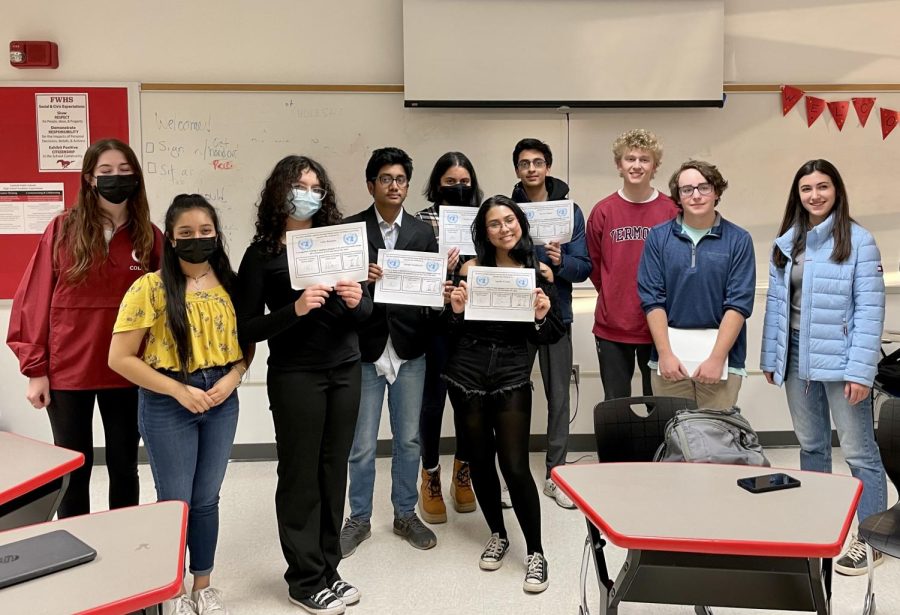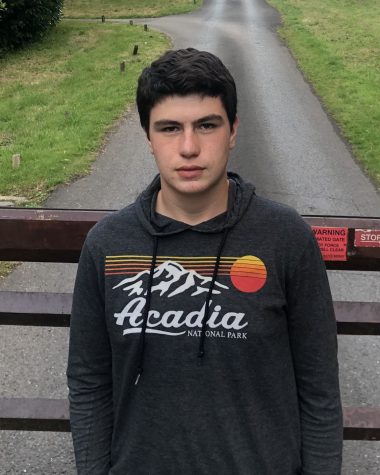The Model of a Modern Major (Secretary) General
May 23, 2022
The Model United Nations Club (“Model UN”) at Ludlowe is revamping its operations for the upcoming year, under the leadership of club president Aniket Martins.
Martins’ plan for the club promises to expand its scope to include more conferences with other schools, and larger conferences sponsored by large universities, such as Yale or Harvard. Martins argues that these conferences “offer [the] club an opportunity to grow, learn, and develop as critical thinkers.”
Currently, the club focuses on mock conferences within the Ludlowe community. An example of a recent topic is “International trade and improved working regulations to promote developing countries’ economic activity and protect workers.”
For conferences like these, delegates are assigned a diverse group of countries, ranging from China and the United States to Kenya and the Philippines. This grouping allows the students to learn more about a place they might not otherwise focus on.
Another aspect of the club is its growing crisis curriculum. Crisis simulations are a fast-paced, personal version of a General Assembly conference. Here delegates will represent people instead of countries, and can make unilateral decisions while also bringing directives to a vote.
Recent simulations include the war in Ukraine, as well as a power outage in New York City. Some of the people involved include Polish President Andrzej Duda, or the former Mayor of New York, Bill de Blasio. The delegates deal with a pre-set “crisis arc” while also crafting a “personal arc.” They may issue directives to fix problems, or give crisis notes designed for personal gain, all of which are evaluated by the crisis team, made up of club officers.
Martins, a member of the club for two years before becoming an officer and eventually President, promises to grow the club, recruiting new members from incoming freshmen as well as veteran Ludlowe students. Should he succeed, the new members will bring many new ideas and new perspectives to international affairs.
The club’s pros, in my opinion, far outweigh the cons. The experience of being a delegate incorporates a multitude of skills, from research to negotiation to public speaking. All of these are useful for ordinary life, outside of school, in an employment market or future career. Researching for position papers means combing through data to find the points relevant to what you want to prove, but also what could hurt you. A delegate must get up and speak in front of a group in order to communicate their goals. Finally, they must negotiate and compromise to do the most amount of good for their nations.
The only noticeable consequence is the time it takes up, which is minimal. A commitment of maybe two hours of work a week should be expected. Also, the beginning of the year focuses a lot on training new delegates, as opposed to doing conferences. This all pays off, however, when the conferences are better for the entire group.
All in all, I would highly recommend the Model UN club to anyone interested. Martins is an extremely capable leader, and the club promises development of important skills. I may be a little biased as an officer of the Model UN, but membership has irrefutable benefits.


